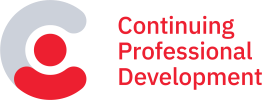



Select a day ->
Agenda - Thursday, February 8, 2024
All presentations will be given in English unless otherwise specified. Participants can however ask their questions in English and French.
07:30-08:00
Registration and Continental Breakfast
08:00-08:15
Introduction to the Program and Quick Quiz
08:15-08:50
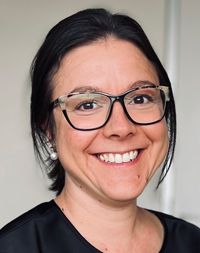
Poo-Pourri: A Refresher on Chronic Constipation in Children
Audrey Lafontaine
Pediatrician, Montreal Children's Hospital, Montreal, QC
Learning Objectives
At the end of this session, participants will be able to:
1. Recognize the common symptom of constipation in the pediatric population and be able to explain its pathophysiology to families.
2. Identify red flags that warrant investigation for organic illness
3. Confidently apply both pharmacological and non-pharmacological techniques in the management of chronic constipation in children
1. Recognize the common symptom of constipation in the pediatric population and be able to explain its pathophysiology to families.
2. Identify red flags that warrant investigation for organic illness
3. Confidently apply both pharmacological and non-pharmacological techniques in the management of chronic constipation in children
08:50-09:00
Quick Quiz
09:00-09:35

Over and Out! - When to Stop Antibiotics for Common Pediatric Infections
Marie-Astrid Lefebvre
Pediatric Infectious Diseases Specialist, Montreal Children's Hospital, Montreal, QC
Learning Objectives
At the end of this session, participants will be able to:
1. Understand basic principles of antibiotic stewardship.
2. Interpret the literature supporting the recommendations for antibiotic durations in pediatric patients
3. Identify which types of patients can safely be prescribed a short course of antibiotics for a variety of outpatient infections.
1. Understand basic principles of antibiotic stewardship.
2. Interpret the literature supporting the recommendations for antibiotic durations in pediatric patients
3. Identify which types of patients can safely be prescribed a short course of antibiotics for a variety of outpatient infections.
09:35-09:45
Quick Quiz
09:45-10:20
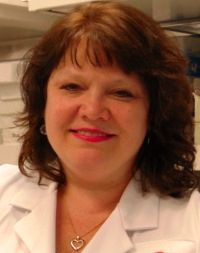
Allergy Desensitization - Get a Feel for It!
Christine McCusker
Division Director, Allergy, Immunology, Dermatology, Clinician Scientist, Montreal Children's Hospital, MUHC RI, Montreal, QC
Learning Objectives
At the end of this session, participants will be able to:
1. Review the burden of food and environmental allergies in the pediatric population.
2. Identify children who are candidates for desensitization.
3. Critically review the latest approaches to allergy desensitization in children.
1. Review the burden of food and environmental allergies in the pediatric population.
2. Identify children who are candidates for desensitization.
3. Critically review the latest approaches to allergy desensitization in children.
10:20-10:50
Coffee Break and Visit the Exhibitors
10:50-11:25
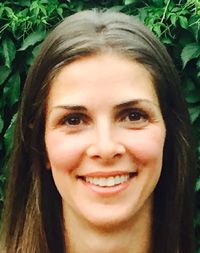
Achy Breaky Heart - Ease your Mind on Syncope and Palpitations in Children and Youth
Virginie Beauséjour-Ladouceur
Pediatric Cardiologist, Montreal Children's Hospital, Montreal, QC
Learning Objectives
At the end of this session, participants will be able to:
1. Distinguish benign from worrisome causes of syncope and palpitations in youth using key history and physical exam skills.
2. Identify the uses as well as limitations of certain investigations often undertaken for this problem.
3. Recognize when it would be appropriate to refer to Pediatric Cardiology.
1. Distinguish benign from worrisome causes of syncope and palpitations in youth using key history and physical exam skills.
2. Identify the uses as well as limitations of certain investigations often undertaken for this problem.
3. Recognize when it would be appropriate to refer to Pediatric Cardiology.
11:25-11:35
Quick Quiz
11:35-12:10

Tips for Providing Culturally Safe Care for Indigenous Children and Youth
Kent Saylor
Pediatrician, Mohawk Communities of Kahnawake and Akwesasne, Kahnawake, QC
Learning Objectives
At the end of this session, participants will be able to:
1. Discuss the concept of cultural safety
2. Describe colonial practices that have lead to the current mistrust of the health system from Indigenous peoples
3. Define the characteristics and importance of culturally safe health care for Indigenous peoples.
4. Provide examples of actionable points regarding Indigenous cultural safety that can be integrated in your daily practise.
1. Discuss the concept of cultural safety
2. Describe colonial practices that have lead to the current mistrust of the health system from Indigenous peoples
3. Define the characteristics and importance of culturally safe health care for Indigenous peoples.
4. Provide examples of actionable points regarding Indigenous cultural safety that can be integrated in your daily practise.
12:10-13:30
Lunch Break and Meet the Experts Round Table Discussions

Virginie Beauséjour-Ladouceur
Cardiology
Pediatric Cardiologist, Montreal Children's Hospital, Montreal, QC

Audrey Lafontaine
General Pediatrics
Pediatrician, Montreal Children's Hospital, Montreal, QC

Marie-Astrid Lefebvre
Infectious Disease
Pediatric Infectious Diseases Specialist, Montreal Children's Hospital, Montreal, QC

Christine McCusker
Allergy-Immunology
Division Director, Allergy, Immunology, Dermatology, Clinician Scientist, Montreal Children's Hospital, MUHC RI, Montreal, QC
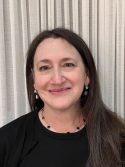
Terry Sigman
Gastro-intestinal
Director, Division of Pediatric Gastroenterology, Montreal Children's Hospital, MUHC, Montreal, QC
13:30-14:20
WORKSHOPS (repeated twice)
13:30-14:20
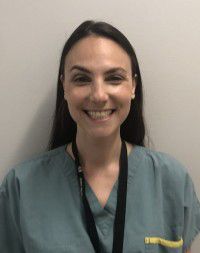
Breathe Easy - Asthma Management Workshop
Lianne Kopel
Pediatric Respirologist, Montreal Children’s Hospital, Montreal, QC
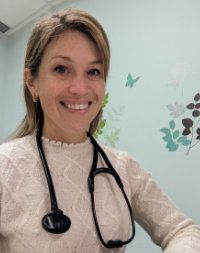
Sophie Vallée-Smejda
Respiratory Nurse Practitioner, Montreal Children's Hospital, Montreal, QC
Learning Objectives
At the end of this session, participants will be able to:
1. Recall major concepts appearing in the latest Canadian Thoracic Society guidelines for the management of asthma in youth.
2. Analyze cases that present diagnostic and management challenges in the office setting.
3. Recognize when it would be appropriate to refer to Pediatric Respirology or a specialized asthma clinic.
1. Recall major concepts appearing in the latest Canadian Thoracic Society guidelines for the management of asthma in youth.
2. Analyze cases that present diagnostic and management challenges in the office setting.
3. Recognize when it would be appropriate to refer to Pediatric Respirology or a specialized asthma clinic.
13:30-14:20
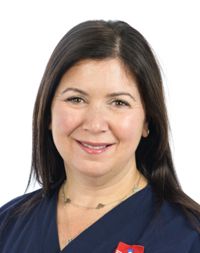
ER PR: Emergencies in the Pediatric Office Setting
Ilana Greenstone
Pediatric Emergency Medicine, Montreal Children's Hospital, Montreal, QC
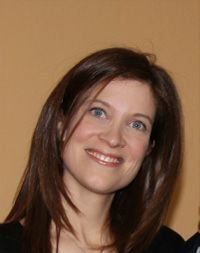
Ilana Bank
Pediatric Emergency Medicine, Montreal Children's Hospital, Montreal, QC
Learning Objectives
At the end of this session, participants will be able to:
1. Identify which patients can be managed in the clinic versus sent to the emergency room (ED)
2. Outline how to equip a pediatric office with materials in order to be prepared for emergency situations.
3. Review procedural skills instrumental to managing minor trauma in the office setting.
1. Identify which patients can be managed in the clinic versus sent to the emergency room (ED)
2. Outline how to equip a pediatric office with materials in order to be prepared for emergency situations.
3. Review procedural skills instrumental to managing minor trauma in the office setting.
13:30-14:20

Ear to the Ground: Paving the Way in Otitis Media
Sam Daniel
Director, Otolaryngology, Head and Neck Surgery, Chief of Surgery, Montreal Children's Hospital, Montreal, QC

Jessica Yeates
Pediatrician, Lasalle Hospital and Hillside/The Children’s Clinic, Montreal, QC
Learning Objectives
At the end of this session, participants will be able to:
1. Differentiate between various middle ear pathology in the pediatric population (acute otitis media, serous otitis, mucoid otitis)
2. Recall management guidelines for acute otitis media in children.
3. Identify when a referral to pediatric ENT is appropriate, as well as indications for audiology testing.
1. Differentiate between various middle ear pathology in the pediatric population (acute otitis media, serous otitis, mucoid otitis)
2. Recall management guidelines for acute otitis media in children.
3. Identify when a referral to pediatric ENT is appropriate, as well as indications for audiology testing.
13:30-14:20

Short and Sweet: Clarifying Follow-up of the Premature Infant
Elise Couture
Pediatrician, Neonatal Follow-up Clinic, Montreal Children's Hospital, Montreal, QC
Learning Objectives
At the end of this session, participants will be able to:
1. Recognize the unique health and developmental challenges of the premature infant in the first year of life.
2. Review a practical approach to the follow-up of the premature infant.
3. Outline the role of the primary physician in complex cases followed by multiple subspecialists.
1. Recognize the unique health and developmental challenges of the premature infant in the first year of life.
2. Review a practical approach to the follow-up of the premature infant.
3. Outline the role of the primary physician in complex cases followed by multiple subspecialists.
13:30-14:20
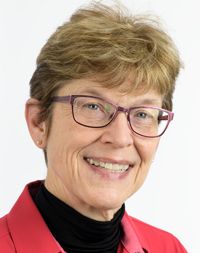
Hip Tips You Knee-d to Know: Lower Extremity Physical Exam Workshop (This workshop will not be recorded.)
Claire Leblanc
Pediatric Rheumatologist and Sport Medicine Physician, Montreal Children's Hospital, Montreal, QC
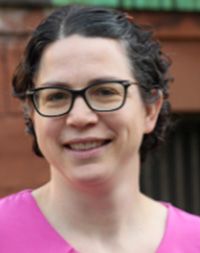
Isabelle Pearson
Physiotherapist, School of Physical and Occupational Therapy, McGill University, Montreal, QC and Active Solution Physiotherapy, Verdun, QC
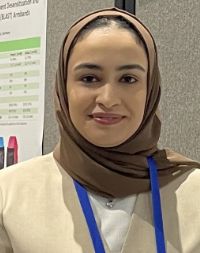
Bashayer Alnuaimi
Pediatric Rheumatology Resident, Montreal Children's Hospital, Montreal, QC
Learning Objectives
At the end of this session, participants will be able to:
1. Review the physical examination of the knee and hip
2. Perform specific maneuvers and special tests to help orient the differential diagnosis of common MSK complaints
1. Review the physical examination of the knee and hip
2. Perform specific maneuvers and special tests to help orient the differential diagnosis of common MSK complaints
13:30-14:20
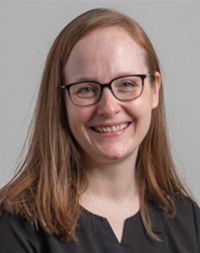
Don’t Get Bent Out of Shape: Heading Cranial Deformities Off (bilingual presentation)
Camille Costa
Physical Medicine and Rehabilitation Specialist, Shriners Hospital for Children, Montreal, QC
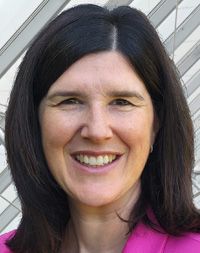
Evelyne Labonté
Physiotherapist, CHU Sainte-Justine, Montreal, QC
Learning Objectives
At the end of this session, participants will be able to:
1. Define plagiocephaly and related cranial deformities encountered in the infant population.
2. Evaluate a child with a cranial deformity for important secondary causes requiring more urgent referral to a pediatric specialist.
3. Apply practical tools in the counseling of families with children having plagiocephaly.
1. Define plagiocephaly and related cranial deformities encountered in the infant population.
2. Evaluate a child with a cranial deformity for important secondary causes requiring more urgent referral to a pediatric specialist.
3. Apply practical tools in the counseling of families with children having plagiocephaly.
14:30-15:20
Repeat of 13:30-14:20 Workshops
15:20-15:40
Coffee Break
15:40-16:30
Repeat of 13:30-14:20 Workshops
